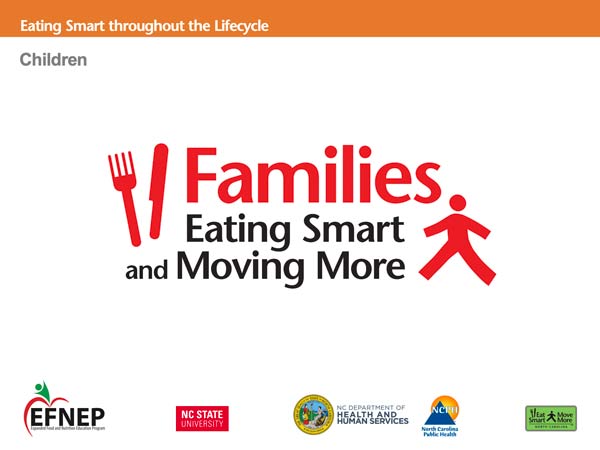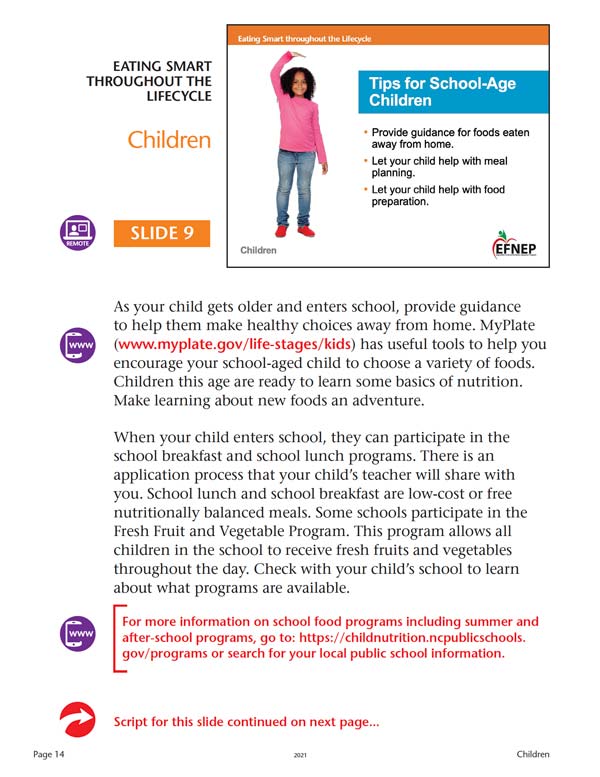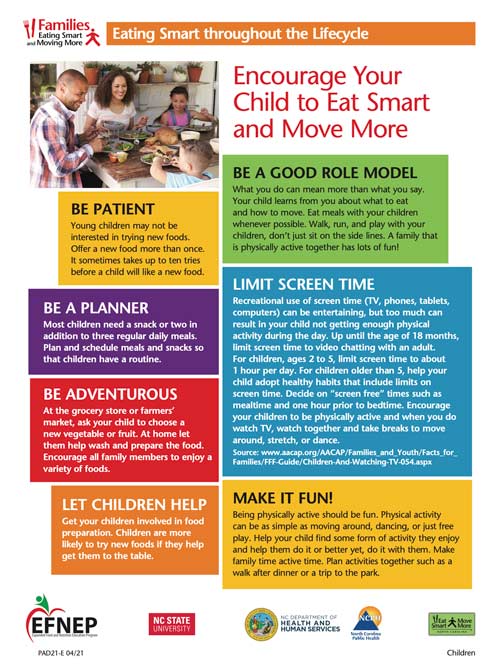Curricula
Families Eating Smart and Moving More (FESMM)
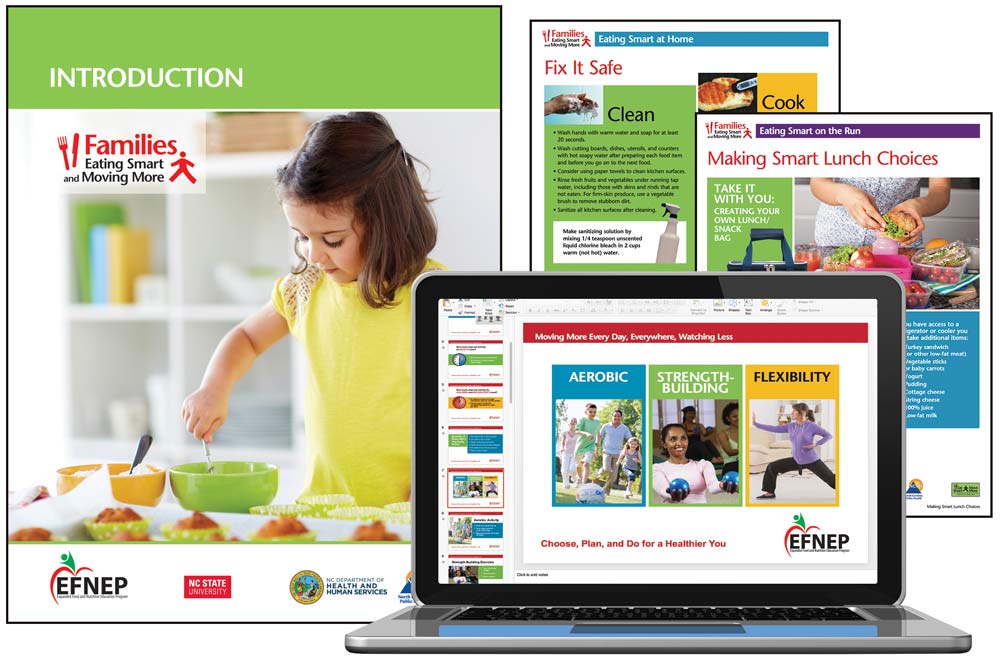
The Adult component of the program utilizes a curriculum developed collaboratively with the Division of Public Health, Nutrition Services Branch and Physical Activity and Nutrition Branch and NC State University called, EFNEP’s Families Eating Smart and Moving More (FESMM). The curriculum is approved in the SNAP-Ed Toolkit.
The curriculum consists of 21 lessons under five major headings:
Introduction to the Expanded Food and Nutrition Education Program
- Introduction to EFNEP
Eating Smart at Home
- Choosing More Fruits and Vegetables
- Fix it Safe
- Plan: Know What’s for Dinner
- Shop: Get the Best for Less
- Fix it Fast, Eat at Home
- Shop for Value, Check the Facts
- Smart-size Your Portions
Eating Smart Throughout the Lifecycle
- MyPlate
- Pregnancy
- Breastfeeding
- Infants
- Children
Eating Smart on the Run
- Making Smart Breakfast Choices
- Making Smart Lunch Choices
- Making Smart Choices When Eating Out
- Making Smart Choices When Eating Fast Food
- Making Smart Drink Choices
Moving More, Every Day, Everywhere, Watching Less
- Choosing to Move More Throughout the Day
- Choose, Plan, Do for a Healthier You
- Choosing a Healthier You for Life
EFNEP’s Families Eating Smart and Moving More uses both hands-on food preparation activities and incorporates physical activities into each lesson. Participants are challenged to make positive changes to achieve good nutrition and health, increase physical activity, control portion sizes, practice food resource management skills, practice food safety in preparation and practice safe storage and handling of food.
View a sample lesson
Camp, Cook, Play!
Youth ages 8-12 will have fun in a summer camp setting where they will learn about MyPlate and the five food groups, kitchen and food safety practices and physical activity. This curriculum is developed to positively affect five key health behaviors:
- Increase the youth’s knowledge of human nutrition;
- Increase the variety of foods in the youth’s daily diet;
- Improve the youth’s ability to select low-cost, nutritious foods for meals and snacks;
- Improve food preparation and food safety practices to reduce the risk of foodborne illnesses; and
- Increase daily physical activity
North Carolina State University
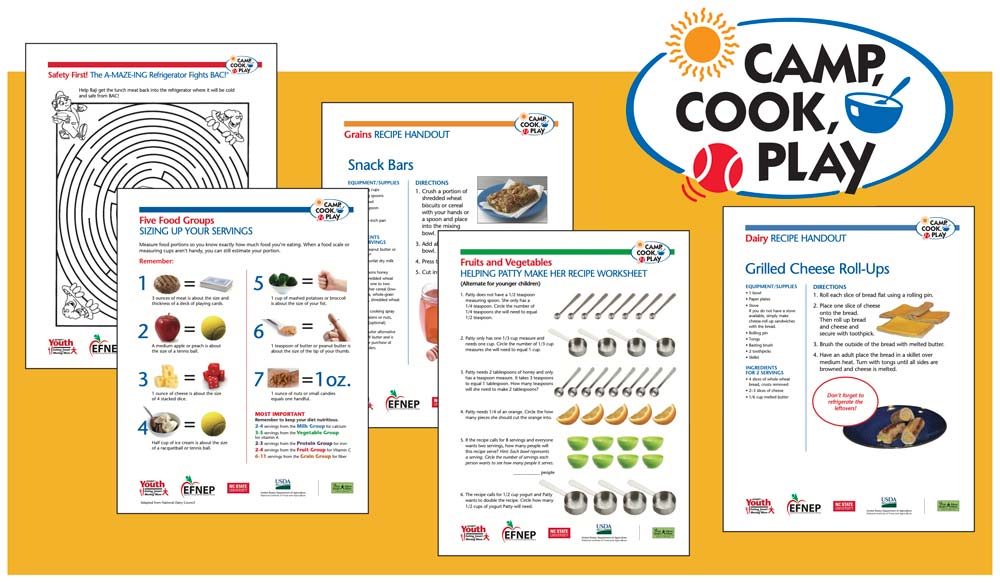
Fuel for Life
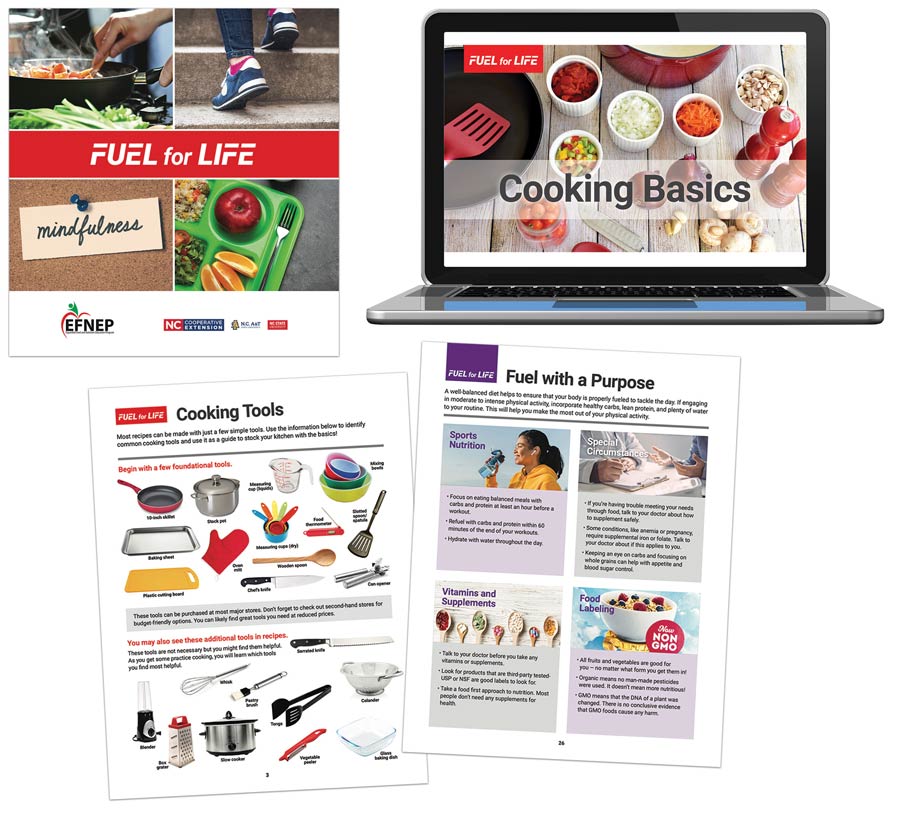
Fuel for Life is grounded in the Social Cognitive Theory and Theory of Planned Behavior. The program focuses on mindful movement, mindful eating, goal setting, and food preparation skills. The interactive curriculum consists of PowerPoint slides, in-class activities, recipe activities, student workbooks, and recipe videos, covering the following 8 lessons:
- Lesson 1 Cooking Basics
- Lesson 2 Nutrition Basics
- Lesson 3 Bowl Meals
- Lesson 4 Snack Smart
- Lesson 5 Eating Out
- Lesson 6 Fuel with a Purpose
- Lesson 7 Microwave Meals
- Lesson 8 Handheld Meals
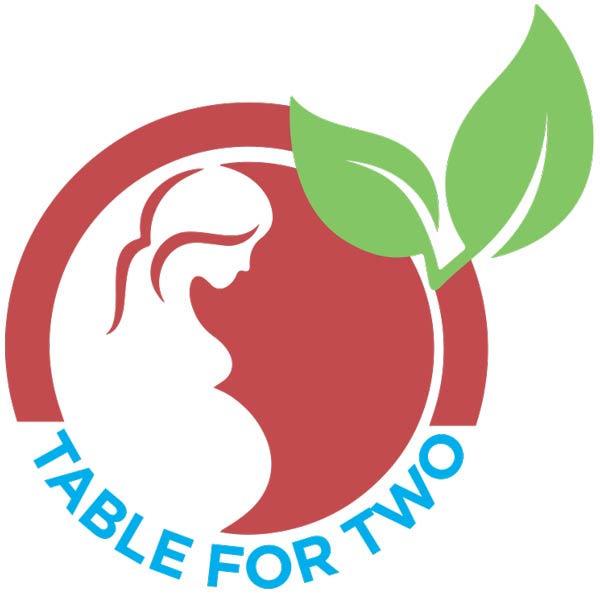
Table for Two
Table for Two educates the mother on how to use nutrition to take care of herself and the baby during and after pregnancy which reduces the risk for infant mortality. Pregnant women are empowered with the tools needed to provide healthy meals and to make healthy choices, reducing the risk of birth defects and low birth weight. Table for Two is engaging and creates a support group for the mother to ask questions and gain support for her peers.
